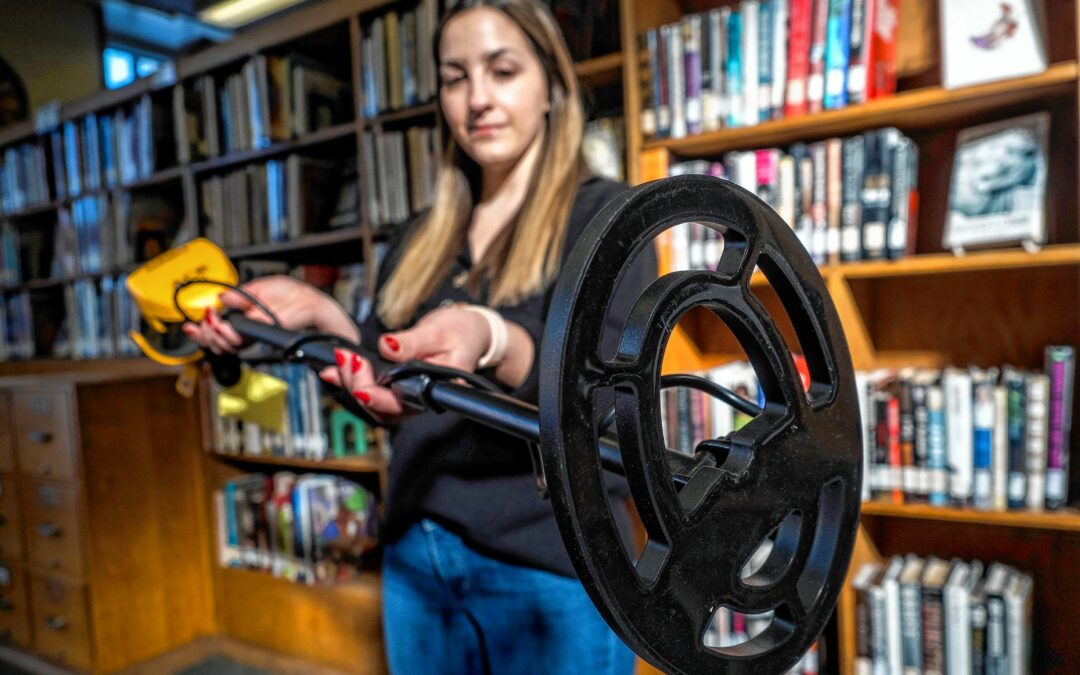In the latest twist of the borrow-things-rather-than-own-them movement, Concord Public Library has unveiled a novel program in which they’re lending out stuff as varied as ukuleles, soil analyzers and paper shredders.
At least, I thought it was novel. Turns out they’ve done it before in slightly weirder ways.
“We used to loan out artwork, years and years ago,” said reference librarian Nora Cascadden.
That’s not too weird, perhaps, but this is: “We loaned out taxidermy animals back in the ‘70s,” said Ashley Miller, outreach coordinator for the library.
Taxidermy animals?!?
Sounds intriguing, but unfortunately you can no longer take home a stuffed owl to gaze at you while perusing a handful of Agatha Christies; the collection was long ago donated to the Squam Lakes Natural Science Center.
The new program, launched late last month with the straightforward title Library of Things, isn’t weird but it is varied. From a violin to a light therapy lamp to a GPS navigator (good for geo-caching, notes the website) to a cassette player for that party tape you made in high school, it offers an intriguing grab-bag of items to try out.
“The most unexpected is the popularity of Kill-a-watt,” said Cascadden, describing a hand-held device that measures how much electricity is being used. The obvious culprit, she said, is high electricity prices, which lead people to seek ways to cut back.
Also popular are slide scanners, to digitize all those pictures that your parents took before Kodak faded away.
Using the Library of Things requires a library card – free for city residents, costing $40 to $100 every six months for others – and there are a few provisos. You have to be at least 18 years old and sign an agreement form, and borrowing is mostly limited to one week, but otherwise it’s like taking out a book.
The list of available objects will change over time, depending on popularity and need. The program’s cost is being absorbed within the overall budget.
For those of us who think of libraries as a place for books, magazines and maybe internet access, lending soil analyzers and karaoke machines seems a stretch. Not so.
“It’s staying within our realm of providing services – a continuation of that, in a slightly different way,” said Miller. “Libraries are the great economic equalizer. No matter who you are, your socio-economic status, you can get education, free programs … and now some things.”
The idea of borrowing items needed only occasionally, rather than forking out for them and having them sit unused in the basement 99% of the time, makes a ton of sense in financially strained times.
“Not everyone needs a vehicle code reader every day, to find out why their tire pressure light keeps going on,” pointed out Cascadden.
This concept is central to non-profits like makerspaces and, with money attached, to some businesses. Many hardware and auto-parts stores will rent out tools, community kitchens exist where you can use pots, pans and stoves, while transportation companies like ZipCar, Uber and Lyft have been built around the idea that you don’t always need the expense and bother of owning a car to benefit from one.
In a crowded world with depleted resources, getting more use out of existing things is a no-brainer. Even if stuffed owls aren’t among the offerings.
To learn more, check the website: www.concordnh.gov/588/Library.


 Return to the Concord Monitor
Return to the Concord Monitor
Very cool. Back in the day (late 70’s) my university loaned out art we could use in the dorms. Everything old is new again.